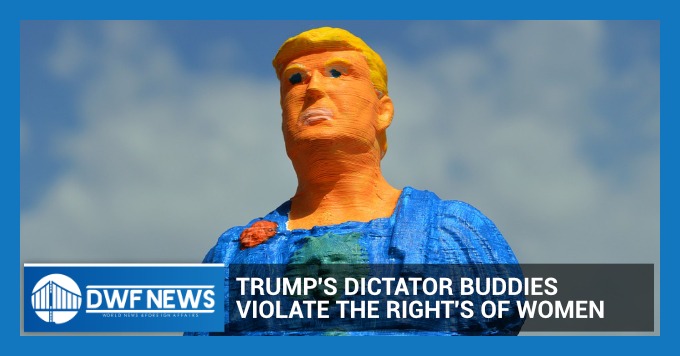“It is the latest example of how governments around the world are failing to protect women — and even institutionalizing inequities that put them in danger”
Kate Dannies, Assistant Professor of Global and Intercultural Studies, Miami University (Ohio)
Written By Barbara Crossette
Senior Consulting Editor| PassBlue
March 2, 2020
Article originally published by PassBlue
In the gallery of authoritarian governments undercutting the rights of women and threatening democracy around the world, five nations stand out for a special reason. Donald Trump has made the leaders of Brazil, Egypt, India, Saudi Arabia and Turkey his friends and accomplices.
In all of these countries, according to mounting evidence in numerous studies, women’s reproductive rights in particular have become targets of repressive policies. Women are also often victims of state violence.
India, a startling example for a democratic nation, is especially newsworthy.
With all the baggage of his antiwomen policies and actions in the United States, Trump is scheduled to travel to India in late February to meet with Prime Minister Narendra Modi. This trip comes against the backdrop of women side-by-side with men being beaten by police on the streets and university campuses of Indian cities as they protest new anti-Muslim citizenship laws.
No quarrel with Modi on that count. Trump has just proposed an extended ban (or limitations) on travel to the US to six more nations with large Muslim populations, four of them in Africa: Eritrea, Nigeria, Sudan and Tanzania. Kyrgyzstan has also been added to the ban, as well as Myanmar, where the Muslim Rohingya have been the victims of prolonged lethal assault by the largely Burmese Buddhist military.
In the Muslim majority territory of Kashmir, nearly six months after a heavy Indian Army occupation was imposed, thousands of women and their families are still without male breadwinners who were taken into Indian detention without explanation. A loose coalition in the US Congress is forming to oppose Modi’s Kashmir policies, backed by a Congressional Research Service report warning that the Hindu nationalist government’s actions could taint India’s democratic credentials . . .
What is World Federalism?
World Federal Government (WFG)
Original Publisher
PassBlueBarbara Crossette is the senior consulting editor and writer for PassBlue and the United Nations correspondent for The Nation. She is also a board member of the Carnegie Council for Ethics in International Affairs and a member of the Council on Foreign Relations. She is a contribtor to the Oxford Handbook on the United Nations.
Previously, Crossette was the UN bureau chief for The New York Times from 1994 to 2001 and before that its chief correspondent in Southeast Asia and South Asia. She is the author of “So Close to Heaven: The Vanishing Buddhist Kingdoms of the Himalayas,” “The Great Hill Stations of Asia” and a Foreign Policy Association study, “India Changes Course,” in the Foreign Policy Association’s “Great Decisions 2015.”
Crossette won the George Polk award for her coverage in India of the assassination of Rajiv Gandhi in 1991 and the 2010 Shorenstein Prize for her writing on Asia.
Related Articles
LIST of Articles DWF NEWS 5/28/25
Children, Civilians Burned Alive as Israeli Warplanes Target School, Home in Gaza Palestine Chronicle staff 'Can't Remain Silent' on Jewish Atrocities: Malaysian Foreign Minister Says at ASEAN Foreign Ministers' Meeting Aamir Latif Anadolu Agency ...
LIST of Articles for DWF NEWS 5/14/25
Should "Israel" Be Declared A Terrorist Entity? Kevin Barrett Israel Is Spiraling Ori Goldberg The Nation 'Our Position on Palestine Is Not Fringe' Janine Jackson FAIR Latecomers starting to join PEOPLE OF CONSCIENCE Multiple Western Press Outlets Have...
List of Articles for DWF NEWS 4/30/25
PEOPLE OF CONSCIENCE absent among WASP & Zionist elites Imperial Cowardice: Gaza & the Moral Collapse of the American Elite Mohamed El Mokhtar The Palestine Chronicle Where is the Arab Street? Asad Abukhalil Consortium News Gaza exposes the rot of...
Solving Global Problems
We can work together to make the world better

